'De-escalation now' – WFP warns against spreading Middle East crisis
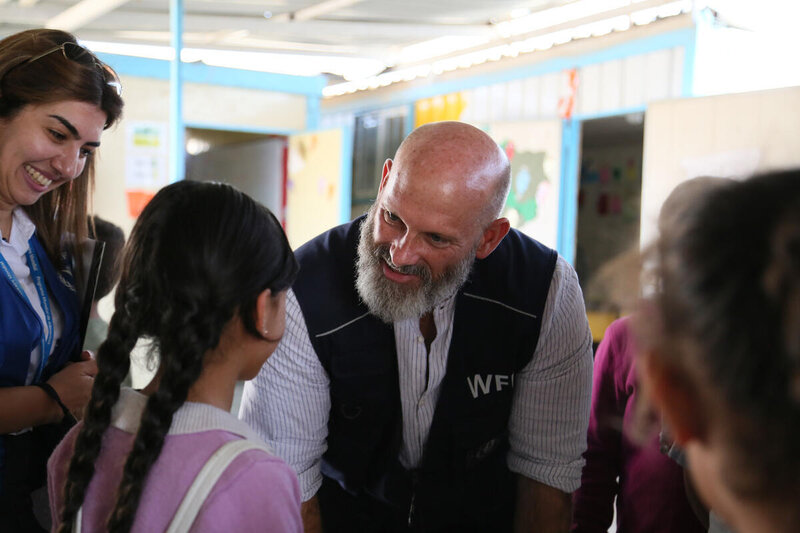
Matthew Hollingworth has seen this all before.
Desperate people on the move, fleeing skies turned orange-red from bombings. Families crammed into bare-bones shelters and informal settlements, their homes and whole neighborhoods turned to rubble. The keen fear of what comes next – and the challenge of juggling complex bureaucracy and a fast-moving emergency to feed hungry people and keep staff safe.
That’s the story today in Lebanon – where Hollingworth serves as World Food Programme (WFP) Country Director – as a conflict that erupted a year ago in nearby Gaza threatens to morph into a regional one.
“Sadly, we could see this coming – that Lebanon would be next,” says Hollingworth, who believes de-escalation now is imperative. “This is a regional war already, and it can get much, much worse – with much greater needs and requirements for the aid world.”
Hollingworth’s remarks come days after he visited southern Lebanon, where hundreds of thousands of people have fled Israeli airstrikes. Countrywide, more than a million Lebanese residents have been uprooted from their homes in recent weeks.
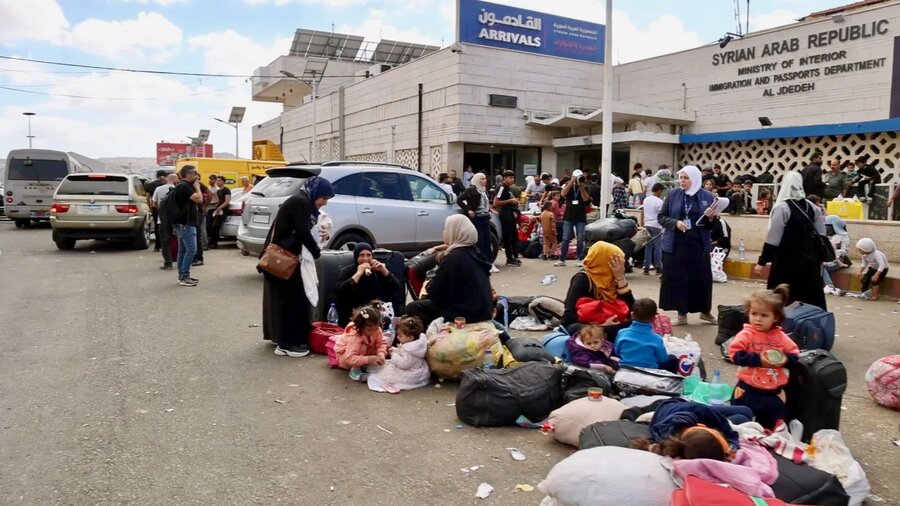
“I’m hearing stories that are heartbreaking from people who have already lost family members,” Hollingworth says. “They're not only running out of fear, but many because of loss.”
“Lebanon is at a breaking point and cannot endure another war,” says Corinne Fleischer, WFP Regional Director for the Middle East, North Africa and Eastern Europe. “A further escalation would be highly detrimental to the people of this region, who have gone through so much already” and would massively stretch the capacity of the humanitarian community.
Within a week of the escalation in Lebanon, WFP reached more than 100,000 people daily with hot meals, ready-to-eat rations, food parcels, fresh bread and cash – with plans to reach up to a million or more people with assistance in the coming month as needs continue to climb.
“You’re seeing more and more southerners coming to Beirut, or heading inland and northwards to safety,” says Hollingworth. Airstrikes are turning swathes of the suburbs of Beirut, where he is based, into rubble.
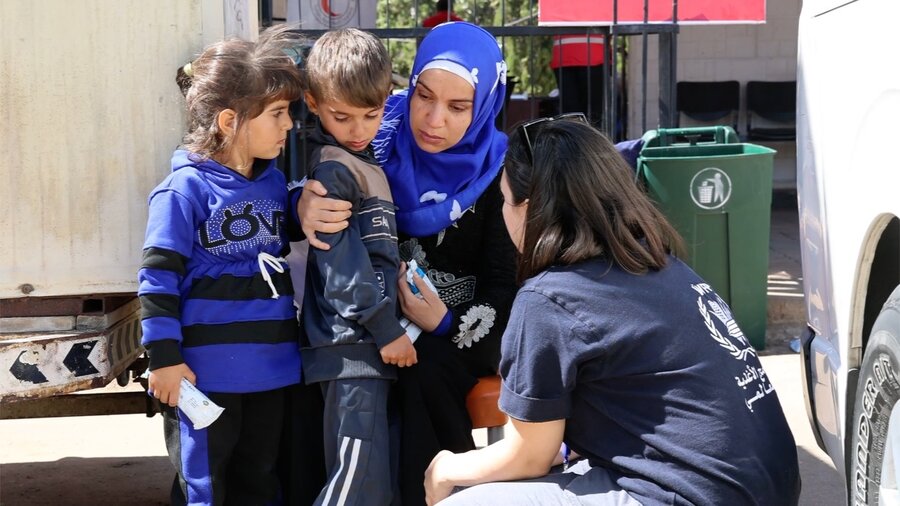
“More and more people are in shelters but also on the streets”, where rains bring additional misery, Hollingworth says. Schools and other formal shelters are overflowing, with hundreds sharing just a few toilets and other bare-bones facilities. Still other war-displaced people are sheltering with families or in informal settlements, making it difficult for humanitarian workers to register them and respond.
There are many other challenges to juggle. Women, unaccompanied children and other vulnerable groups face special protection issues, Hollingworth says.
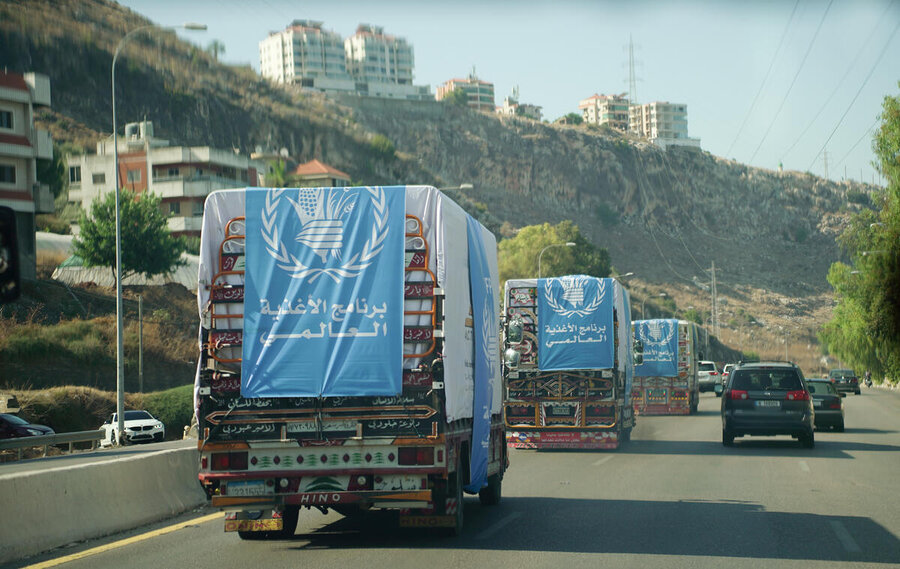
“Security and safety are serious worries, and women-headed households are particularly vulnerable,” he says, noting WFP is working closely with United Nations agencies and other partners to ensure their safety.
As people are given less and less time to gather essentials and flee incoming strikes, humanitarian needs are mounting. The conflict has hit a country already reeling from back-to-back shocks, including a severe economic crisis.
“We're having to deal with all of these challenges at the same time,” Hollingworth says. “Getting to frontline areas, negotiating that access – and ensuring the safety of our people, staff and partners to get there. Just like in Gaza, I worry about our team; as citizens of this country, they are also all affected and showing up to work every day.”
Still, with the war in Gaza showing no signs of abating, WFP has spent months preparing for its potential spread – making standby arrangements in Lebanon to ensure assistance was at hand if that happened. “It’s very hard to fund anticipatory and readiness actions,” Hollingworth says, “but we did – and it’s made a big difference in our ability to respond immediately.”
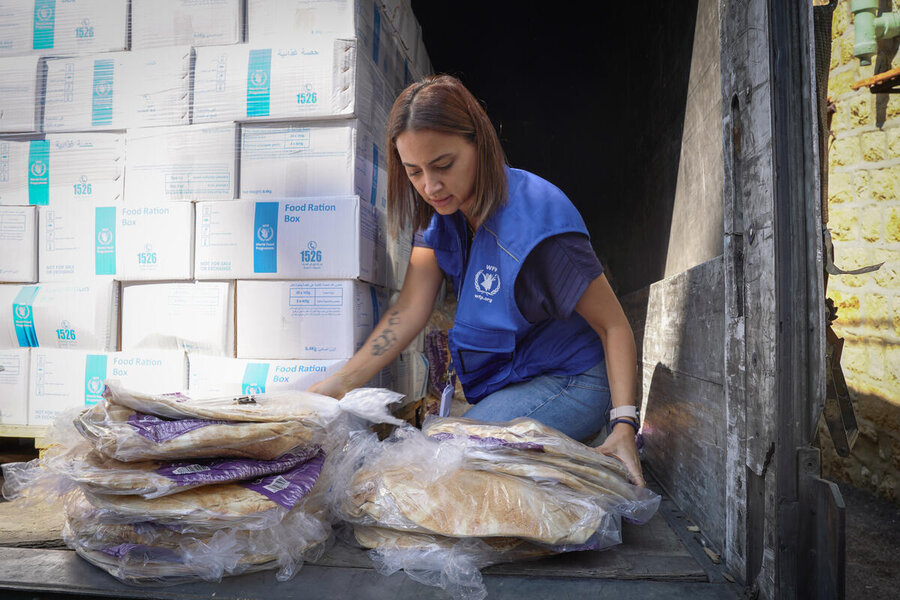
Hollingworth is no stranger to the region. He was one of the first three WFP staff sent to Lebanon during its 2006 war with Israel, to manage logistics responses. More recently, he served as WFP’s Palestine Country Director, as Gaza’s conflict unfolded.
“People in Gaza have lost their homes and loved ones, and have been displaced multiple times,” he says of the Palestinian enclave, where a year of fighting has killed roughly 40,000 people and sent hunger soaring. “That's what people in Lebanon now fear will happen to them.”


